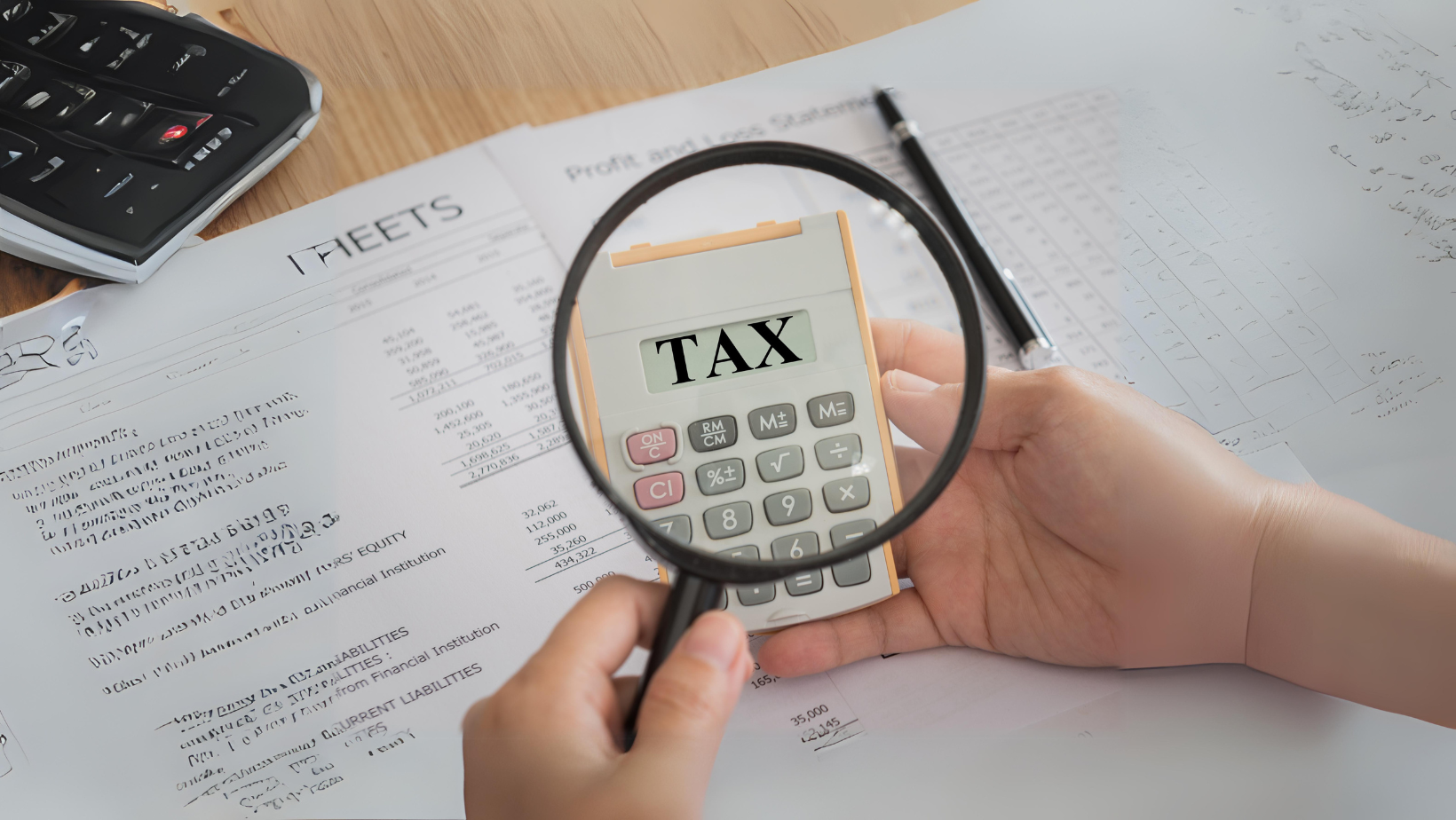
In the vibrant economic landscape of the United States, the role of sales tax as a crucial revenue source can't be understated. Each state has its unique approach toward sales tax, and Georgia is no exception. This southern state, known for its peaches and warm hospitality, has distinct sales tax laws that can directly influence consumer behavior, corporate decisions, and, ultimately, the state's economy.
Whether you're a business owner planning to set up in Georgia, a consumer residing in the state, or simply intrigued by the fiscal policies of different states, understanding Georgia's sales tax is essential. The sales tax rate, how it's applied, and potential exemptions are all pieces of this intricate puzzle we're about to delve into. Keep reading to learn more about the sales tax in Georgia.

The sales tax in Georgia originated in the early 20th century when the state, like many others, sought effective means of generating revenue for public services and infrastructure. Established in 1929, the Georgia sales tax began at a modest 3%, implemented as a means to recover from the economic downturn of the Great Depression. Over time, this tax policy has evolved, with adjustments in rates and application reflecting the state's shifting economic landscape and policy priorities.
For example, if you own a small business in Atlanta, Georgia. When this business sells a product or service, it must add a sales and use tax to the customer's bill. The collected tax is then remitted to the state government. As of 2022, Georgia maintains a state sales tax rate of 4%, but with local surtaxes, the total sales tax can reach up to 8.9%. This tax directly funds state and local budgets, supporting various sectors such as education and transportation infrastructure. It exemplifies the deep interconnection between the sales tax and the broader socio-economic fabric of Georgia.
Several factors drive the sales tax rate and application in Georgia. As a consumer, these drivers influence your purchase decisions, determining the final sales tax amount you'll pay at checkout. Some of the most significant factors that affect sales tax rates in Georgia include:
State law plays a pivotal role in shaping Georgia's sales tax landscape. Through various tax regulations and amendments, the state legislature defines the base sales tax rate, the goods and services subject to this tax, and any potential exemptions. For instance, in 2018, the Georgia tax center passed House Bill 61, mandating that online retailers who generate over $250,000 in sales or conduct more than 200 transactions annually within the state must collect and remit income tax.
This exemplifies how state law can flexibly respond to evolving economic trends, in this case, the meteoric rise of e-commerce, to ensure the sales tax framework remains relevant and effective. Understanding these laws is crucial for businesses and consumers in navigating Georgia's sales tax nexus and making informed financial decisions.
In addition to the base sales tax rate imposed by the state, local surtaxes in Georgia significantly influence the final sales tax experienced by consumers. These surtaxes, which can vary widely from one jurisdiction to another, are typically levied by county or city governments to fund specific local services or initiatives. Adding these surtaxes to the state's base rate can lead to a total sales tax rate of up to 8.9%, as mentioned earlier.
For example, Fulton County, home to Atlanta, imposes an additional local option sales tax (LOST) of 3% intended to reduce property taxes, a special purpose local option sales tax (SPLOST) of 1% for funding capital outlay projects, and a 1% educational local option sales tax (ELOST) to support school projects. This means consumers in Atlanta may pay a total sales tax of 8% (4% state + 4% local). Understanding these different sales tax rates is crucial for businesses and consumers, as they can significantly impact the final price of goods and services and decisions related to commerce and consumption.
The range of goods and services subject to sales tax in Georgia is another critical factor influencing its application. Generally, tangible personal property and certain taxable services. This includes furniture, electronics, clothing, and restaurant meals. However, Georgia law specifies numerous exemptions to these general rules.
For instance, prescription drugs, certain medical devices, and groceries are exempt from local tax charges. Similarly, some services like medical and educational services are generally not taxable. To add to this complexity, some goods and services might be taxed at a different rate, like motor fuel, which has its own excise tax in addition to the sales tax. For businesses, understanding what goods and services are taxable is vital for accurately calculating and collecting sales tax. For consumers, this knowledge can influence purchasing decisions and budgeting considerations.
Georgia periodically holds sales tax holidays, which are specific periods when the federal government waives sales tax on certain goods. These holidays are typically tied to specific events or needs. For instance, the state often holds a sales tax holiday before the school year begins, exempting items like school supplies, clothing, and computers from Georgia sales tax to lessen the financial burden on families preparing for the new academic year. Another popular sales tax holiday aims to encourage the purchase of energy-efficient appliances, where goods meeting certain energy standards are exempt from sales tax for a limited time.
These sales tax holidays directly impact sales trends within the state, often leading to a surge in consumer spending during these periods. These events require strategic planning to manage inventory and marketing efforts for businesses effectively. For consumers, they offer significant savings opportunities. Awareness of upcoming sales tax holidays can benefit businesses and consumers alike.
The sales tax in Georgia is greatly influenced by the economic conditions, both locally and globally. The economy's health directly affects how much consumers spend on taxable goods and services, affecting the sales tax collected. During economic prosperity, people tend to spend more on taxable items, which boosts retail sales tax revenues.
However, when the economy is not doing well, like during the COVID-19 pandemic, consumer spending decreases, and sales tax collections are reduced. For example, after the pandemic hit, many Georgians faced financial uncertainties and cut back on their discretionary expenses, including taxable items. This decrease in purchasing power led to a noticeable decline in sales tax revenue for the state. Monitoring economic conditions is vital for businesses and policymakers to understand consumer behavior and effectively manage county sales tax rates revenues.
Georgia primarily relies on a point-of-sale system for collecting sales tax, where the merchant collects the tax from consumers at the time of purchase and remits it to the state government. However, in some cases, consumers may need to pay a use tax directly to the state if sales tax was not collected at the point of sale. For instance, if a Georgia resident buys an item from an out-of-state retailer who does not have a physical presence in Georgia and no sales tax is collected, the consumer must report and pay the applicable use tax themselves.
Businesses and consumers must understand the difference between point-of-sale and use tax, as it can affect the final price of goods and services and compliance with state tax laws. Businesses must accurately collect and remit sales tax at the point of sale, while consumers must be aware of their use tax obligations to avoid potential penalties.

Various goods and services are exempt from sales tax in Georgia. These exemptions are defined by state law and can vary occasionally. Some common examples of items that are not subject to sales tax include:
Prescription drugs constitute one of Georgia's primary items exempted from sales tax. The state recognizes the essential role these medications play in maintaining the health and well-being of its residents. As a result, prescription drugs are not subject to the standard sales tax that applies to most goods. This tax break helps slightly alleviate the financial burden of Georgia residents' healthcare.
For instance, consider a medication like insulin vital for individuals with diabetes. If insulin were subject to the state's base sales tax rate of 4%, the cost for a vial that typically costs around $300 would increase by $12. Over a year, this additional cost could add up, potentially putting a strain on people with diabetes who need regular insulin supplies. By exempting prescription drugs from sales tax, Georgia helps to keep the cost of these essential medications more manageable for those who rely on them.
Groceries in Georgia are exempt from state sales tax, significantly reducing the total cost of food purchases for residents. This exemption includes essential food items like fruits, vegetables, dairy products, meats, and more when purchased for home preparation and consumption. However, this tax break does not extend to prepared food sold in a heated state or hot food ready for immediate consumption.
For example, rotisserie chicken sold in a supermarket is taxable as it's prepared and sold hot. The exemption of groceries from sales tax significantly benefits consumers, particularly those in lower income brackets, for whom food comprises a larger portion of their overall budget. By not applying the sales tax to groceries, Georgia helps ensure that essential food items are more affordable for everyone.
Much like prescription drugs, medical devices are exempt from sales tax in Georgia. This category includes wheelchairs, prosthetic limbs, pacemakers, and other medical equipment a doctor prescribes. Given that these devices are often crucial for individuals to maintain or improve their health, the state's decision not to tax these items helps to control costs and make these essential items more accessible to those who need them.
For instance, a prosthetic limb, which can cost thousands of dollars, would be significantly more expensive if it were subject to the state's standard sales tax. By providing this tax exemption, Georgia aids in reducing the financial burden for individuals requiring these medical devices.
Preschool and childcare services in Georgia are also exempt from sales tax. This exemption applies to services provided by licensed daycare centers, nursery schools, and similar establishments that care for children under 13. The state recognizes the importance of providing affordable access to these essential services, particularly for working parents.
By not applying sales tax to these services, Georgia helps to reduce the financial burden on families, making quality childcare more accessible. For example, a monthly childcare bill of $800 could increase by $32 if subjected to the state's standard sales tax of 4%. This additional cost could significantly add up over the course of a year, increasing the financial strain on families who need these services. Hence, the exemption of sales tax on preschool and childcare services is a significant relief for many families.
Residential energy, specifically energy used for heating, cooling, and lighting homes, is exempt from sales tax in Georgia. This exemption applies to natural gas, propane, electricity, and other forms of energy used for residential purposes. The state's decision to not tax these essential utilities helps to alleviate the financial strain on homeowners and renters alike.
For instance, if a household's monthly energy bill is $200, a 4% sales tax would add an extra $8. Over a year, this additional cost could amount to nearly $100. By exempting residential energy from sales tax, Georgia effectively makes home energy costs more manageable for its residents.
In Georgia, feminine hygiene products, such as tampons and sanitary pads, are exempt from sales tax. This exemption recognizes the essential nature of these products for women's health and well-being. By not taxing these items, Georgia helps to reduce the financial burden on women who require feminine hygiene products regularly.
For instance, a pack of tampons that typically costs $6.00 would cost an additional 24 cents if it were subject to the standard sales tax rate of 4%. Over a year, this additional cost can increase for women who often need these products monthly. By exempting feminine hygiene products from sales tax, Georgia is helping to ensure that these necessary items are more affordable for women in the state.
Certain educational materials, including textbooks and workbooks, are exempt from sales tax in Georgia. This exemption aims to reduce the financial burden on students and families purchasing essential materials for education.
For example, a textbook costing $50 would have an additional $2 if subject to the state's 4% sales tax rate. Over time, this additional cost could add up for families with multiple children in school. By exempting educational materials from sales tax, Georgia recognizes the importance of making education more affordable and accessible for its residents.
We care about your data — privacy policy.